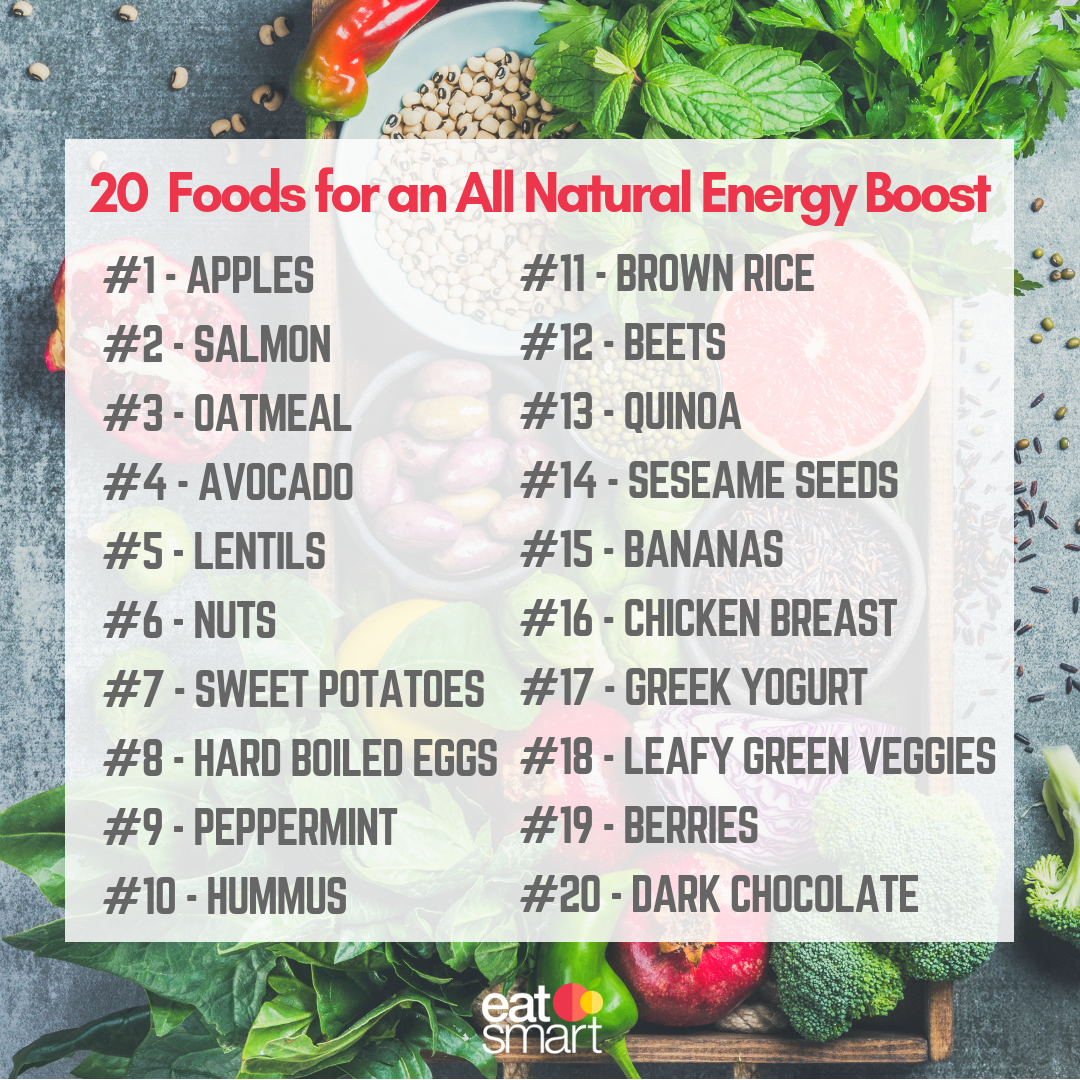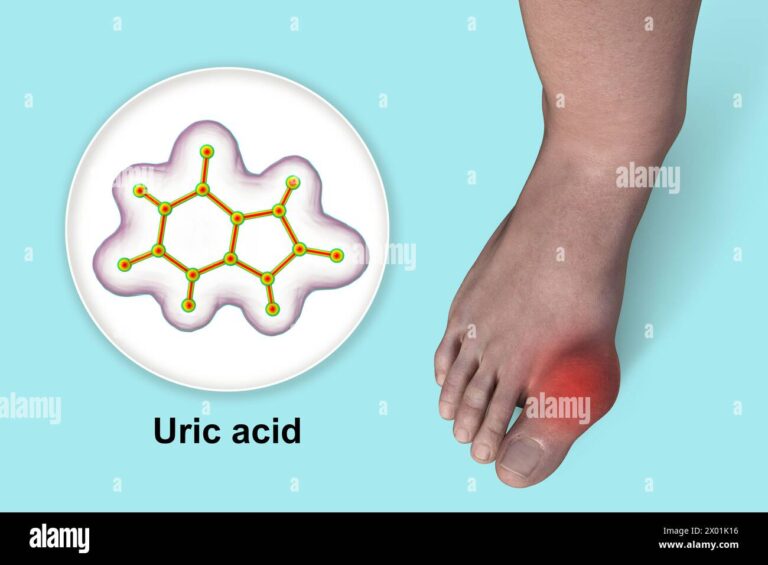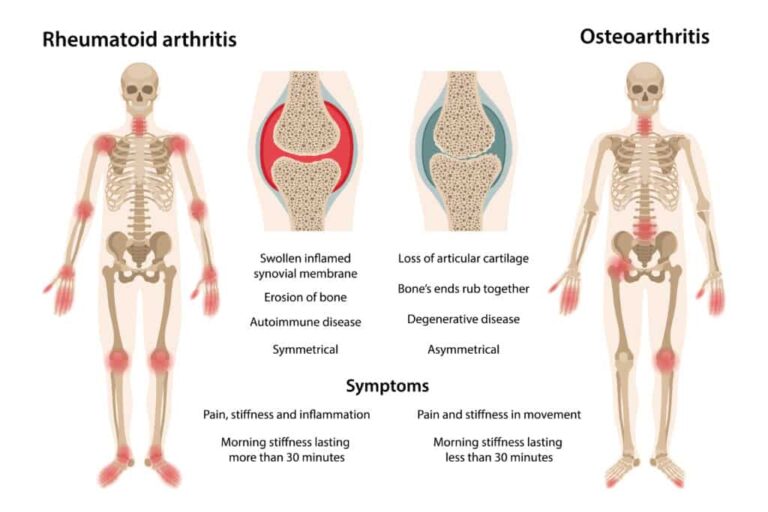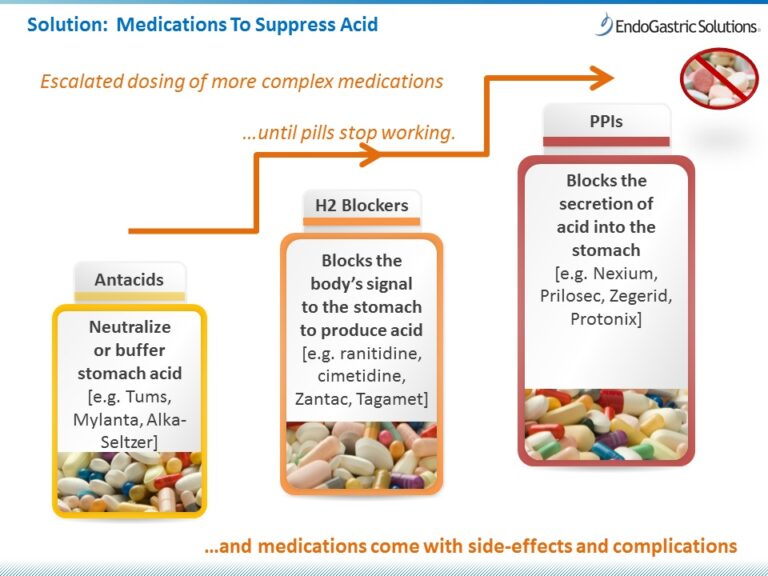Eat Your Way to Energy: Foods That Naturally Boost Focus and Stamina
In the relentless hum of modern life, the quest for sustained energy and razor-sharp focus often feels like a Sisyphean task. We wake up to the blare of an alarm, immediately reaching for the coffee maker, then navigate our days fueled by sugary snacks, energy drinks, and the sheer force of will, only to crash in the afternoon, leaving us feeling depleted and mentally foggy. This cycle, while common, is not natural, nor is it sustainable. It’s a testament to how far we’ve drifted from understanding our bodies as intricate, high-performance vehicles, designed to run optimally on the right kind of fuel.
The truth, a profound and liberating one, is that the antidote to chronic fatigue and mental haze doesn’t lie in a synthetic pill or another shot of espresso. It resides, quite simply, on our plates. Our food, far from being mere sustenance, is the ultimate source of energy, the architect of our cognitive prowess, and the silent builder of our endurance. It’s a story as old as humanity itself, whispered in the wisdom of ancient traditions and now validated by the cutting edge of nutritional science: we can genuinely eat our way to boundless energy, unwavering focus, and enduring stamina.
This isn’t a call for a restrictive diet or a fleeting fad. Instead, it’s an invitation to embark on a journey of nutritional intelligence, to understand the symphony of macronutrients and micronutrients that orchestrate our vitality, and to consciously choose foods that don’t just fill us up, but truly fuel us. It’s about recognizing that every bite is an opportunity to either deplete or empower our cells, our brains, and our very spirit.
The Foundation: Beyond Calories – The Body as an Energy Ecosystem
Before we delve into specific foods, it’s crucial to grasp the fundamental principle: energy isn’t just about calories. Calories are merely units of heat energy, a measure of potential fuel. The quality of that fuel, and how efficiently our bodies convert it into usable energy, is what truly dictates our vitality. Our bodies are complex energy ecosystems, where countless biochemical reactions occur every second, all demanding a steady supply of specific nutrients.
Think of your body as a sophisticated power plant. Its primary currency is Adenosine Triphosphate (ATP), the molecule that carries energy within cells. The mitochondria, often called the "powerhouses of the cell," are where ATP is generated through a process involving glucose (from carbohydrates), fatty acids (from fats), and amino acids (from proteins), all facilitated by a cascade of vitamins and minerals. When any part of this intricate system is compromised – be it through a lack of raw materials or the presence of inflammatory agents – our energy production falters, leading to fatigue, poor concentration, and reduced stamina.
Our journey begins with understanding the three primary macronutrients – carbohydrates, proteins, and fats – and then diving into the critical role of micronutrients, the unsung heroes that make everything work.
The Macronutrient Pillars of Power: Fueling the Machine
1. Complex Carbohydrates: The Steady Burn Fuel
For too long, carbohydrates have been vilified in the diet wars. Yet, they are our body’s preferred and most efficient source of energy. The key, however, lies in distinguishing between simple and complex carbohydrates.
Simple carbohydrates (found in refined sugars, white bread, pastries) are like kindling – they burn fast and bright, causing a rapid spike in blood sugar followed by an inevitable crash. This roller-coaster effect leaves us feeling irritable, sluggish, and craving more sugar.
Complex carbohydrates, on the other hand, are the slow-burning logs. Rich in fiber, they are digested slowly, providing a gradual and sustained release of glucose into the bloodstream. This stable blood sugar level is paramount for consistent energy, preventing those dreaded afternoon slumps, and maintaining cognitive function. When our brain has a steady supply of glucose, it can focus, process information, and retain memories more effectively.
- The Story of Oats: A quintessential slow-release carb, a bowl of steel-cut oats for breakfast sets the stage for a morning of sustained energy. Its soluble fiber creates a gel-like substance in the gut, slowing digestion and absorption.
- The Quinoa Advantage: This ancient grain is a complete protein, but its complex carbohydrate profile, coupled with fiber, magnesium, and B vitamins, makes it an excellent choice for sustained energy. It’s like a multi-tool for vitality.
- Sweet Potatoes: Nature’s Energy Bar: Packed with complex carbs, fiber, and an impressive array of vitamins (especially A and C), sweet potatoes offer a delightful and nutrient-dense energy source without the blood sugar spike.
- Legumes (Lentils, Beans, Chickpeas): These powerhouses combine complex carbohydrates with protein and fiber, making them incredibly satiating and perfect for long-lasting energy. They’re also gut-friendly, a topic we’ll explore further.
2. Lean Proteins: The Building Blocks and Sustained Satiety
Proteins are not just for building muscle; they are fundamental to virtually every bodily function, including energy production and cognitive health. Composed of amino acids, proteins are the building blocks for enzymes, hormones, and neurotransmitters – the chemical messengers that govern our mood, focus, and alertness.
Unlike carbohydrates, protein has a minimal impact on blood sugar, helping to stabilize energy levels when consumed alongside carbs. Its slower digestion also contributes to satiety, preventing overeating and the subsequent energy drain that often follows a heavy meal. Moreover, specific amino acids like tyrosine are precursors to dopamine and norepinephrine, neurotransmitters crucial for focus, motivation, and vigilance. Tryptophan, another amino acid, is a precursor to serotonin, which plays a role in mood, sleep, and overall well-being.
- Eggs: The Perfect Package: Often called nature’s multivitamin, eggs are a complete protein source, meaning they contain all nine essential amino acids. They’re also rich in choline, a precursor to acetylcholine, a neurotransmitter vital for memory and cognitive function. A couple of eggs for breakfast provide sustained energy and mental clarity.
- Fatty Fish (Salmon, Mackerel, Sardines): While primarily known for healthy fats, these fish are also excellent sources of lean protein. The combination is a powerhouse for brain health and sustained energy.
- Chicken and Turkey Breast: Lean, versatile, and packed with protein, these provide the amino acids needed for neurotransmitter synthesis without the heavy fat load of red meats.
- Greek Yogurt: High in protein and often containing probiotics, Greek yogurt is a fantastic snack or breakfast component for sustained energy and gut health.
- Plant-Based Proteins (Tofu, Tempeh, Edamame): For those following a plant-based diet, these soy-based options offer complete protein profiles, supporting energy and cognitive function.
3. Healthy Fats: The Brain’s Super Fuel and Long-Lasting Energy
Fats, like carbohydrates, have suffered from misrepresentation. The truth is, healthy fats are absolutely essential for optimal brain function, hormone production, and sustained energy. Our brains are nearly 60% fat, and these fats form the membranes of every cell, influencing their flexibility and ability to communicate.
Healthy fats, especially monounsaturated and polyunsaturated fats (including Omega-3 fatty acids), are digested slowly, providing a dense, long-lasting source of energy that doesn’t cause blood sugar fluctuations. They also help absorb fat-soluble vitamins (A, D, E, K), which are crucial for countless bodily processes, including energy metabolism.
- Avocados: The Creamy Powerhouse: Rich in monounsaturated fats, fiber, and potassium, avocados are a phenomenal energy booster. They contribute to satiety and provide a steady stream of fuel for the brain.
- Nuts and Seeds (Almonds, Walnuts, Chia Seeds, Flax Seeds): These are nutrient-dense powerhouses, offering healthy fats, protein, fiber, and a wealth of vitamins and minerals. Walnuts, in particular, are rich in omega-3s, vital for cognitive function and reducing inflammation. Chia and flax seeds offer plant-based omega-3s and fiber, promoting sustained energy.
- Olive Oil: The Liquid Gold: A staple of the Mediterranean diet, extra virgin olive oil is rich in monounsaturated fats and antioxidants. It supports cardiovascular health, which in turn ensures efficient oxygen and nutrient delivery to the brain and muscles.
- Fatty Fish (revisited): Salmon, mackerel, sardines, and trout are rich in EPA and DHA, two types of omega-3 fatty acids that are critical for brain structure and function. They enhance neurotransmitter activity, reduce inflammation, and improve mood and focus.
Micronutrient Maestros: The Unsung Heroes of Vitality
While macronutrients provide the bulk of our energy, it’s the micronutrients – vitamins and minerals – that act as the tiny cogs in the mighty machine, enabling the conversion of food into energy, synthesizing neurotransmitters, and protecting our cells from damage. A deficiency in even one key micronutrient can throw the entire energy ecosystem off balance.
- B Vitamins (B1, B2, B3, B5, B6, B7, B9, B12): The Energy Catalysts: This entire complex of vitamins is absolutely crucial for energy metabolism. They help convert carbohydrates into glucose, metabolize fats and proteins, and are involved in the production of red blood cells, which carry oxygen. B12, in particular, is vital for nerve function and preventing fatigue.
- Sources: Whole grains, lean meats, eggs, dairy, leafy greens, legumes.
- Iron: The Oxygen Carrier: Iron is essential for the formation of hemoglobin, the protein in red blood cells that transports oxygen from the lungs to every cell in the body, including the brain and muscles. Iron deficiency (anemia) is a common cause of fatigue, weakness, and poor concentration.
- Sources: Red meat, lentils, spinach, fortified cereals, dark chocolate. Pair with Vitamin C for better absorption.
- Magnesium: The Relaxation and Energy Mineral: Involved in over 300 biochemical reactions in the body, magnesium is critical for muscle and nerve function, blood glucose control, and blood pressure regulation. Crucially, it plays a direct role in ATP production. A deficiency can lead to fatigue, muscle cramps, and difficulty concentrating.
- Sources: Dark leafy greens (spinach, kale), nuts (almonds, cashews), seeds (pumpkin, chia), legumes, whole grains, dark chocolate.
- Zinc: The Cognitive Enhancer: Zinc is involved in numerous enzymatic reactions, immune function, and DNA synthesis. It plays a significant role in neurotransmitter function and cognitive processes, including learning and memory.
- Sources: Oysters (highest), red meat, poultry, beans, nuts, whole grains.
- Vitamin D: The Sunshine Vitamin for Mood and Energy: Often overlooked, Vitamin D receptors are found throughout the brain. It’s crucial for mood regulation, bone health, and immune function. Low levels are frequently associated with fatigue and depression. While primarily synthesized from sun exposure, dietary sources are important.
- Sources: Fatty fish (salmon, tuna), fortified milk and cereals, egg yolks.
- Antioxidants (Vitamins C & E, Beta-Carotene, Selenium): The Cellular Protectors: Our bodies produce free radicals during energy production, which can damage cells and contribute to inflammation and fatigue. Antioxidants neutralize these free radicals, protecting our cells, including brain cells, from oxidative stress. This protection is vital for sustained cognitive function and preventing age-related decline.
- Sources: Abundant in colorful fruits and vegetables (berries, citrus, bell peppers, leafy greens), nuts, seeds.
Specific Food Categories for Targeted Boosts
Now, let’s bring these nutrients together into practical food choices that can be woven into your daily routine.
1. Breakfast Boosters: Setting the Stage for Success
- Oatmeal with Berries and Nuts: The complex carbs from oats provide sustained energy, berries offer antioxidants and natural sweetness, and nuts add healthy fats and protein for satiety and brain health.
- Scrambled Eggs with Spinach and Whole-Wheat Toast: A protein-packed start with choline for brain power, iron from spinach, and steady glucose from whole-wheat.
- Greek Yogurt with Chia Seeds and Fruit: High protein, probiotics for gut health, omega-3s from chia, and vitamins from fruit.
2. Mid-Day Momentum: Avoiding the Afternoon Slump
- Salad with Lean Protein: A base of dark leafy greens (spinach, kale) for magnesium and iron, topped with grilled chicken, salmon, or lentils, and a generous drizzle of olive oil. Add colorful veggies for antioxidants.
- Whole-Grain Wrap with Hummus and Veggies: Complex carbs, plant-based protein and fiber from hummus, and an array of micronutrients from fresh vegetables.
- Lentil Soup: A hearty, fiber-rich meal that delivers complex carbs, protein, and iron, providing sustained energy without feeling heavy.
3. Afternoon Pick-Me-Ups (Beyond the Coffee Cup):
- A Handful of Walnuts or Almonds: Healthy fats, protein, and fiber for a quick, sustained energy boost and improved focus.
- An Apple with Peanut Butter (natural, unsweetened): Fiber from the apple, healthy fats and protein from the peanut butter – a classic combo for steady energy.
- Green Tea: Contains L-theanine, an amino acid that works synergistically with caffeine to promote alert relaxation, improving focus without the jitters.
- Dark Chocolate (70% cocoa or higher): A small piece can provide antioxidants, magnesium, and a little natural stimulant, boosting mood and focus.
4. Dinner for Deep Restoration and Preparation:
- Baked Salmon with Roasted Sweet Potatoes and Asparagus: Omega-3s for brain health and inflammation reduction, complex carbs for glycogen replenishment, and a host of vitamins and minerals.
- Chicken and Vegetable Stir-fry with Brown Rice: Lean protein, a rainbow of vegetables for micronutrients and antioxidants, and complex carbs for sustained energy stores.
The Gut-Brain Axis: Your Second Brain’s Role in Energy
No discussion of energy and focus through food would be complete without addressing the profound connection between our gut and our brain – the gut-brain axis. Our gut houses trillions of microorganisms, collectively known as the microbiome. This "second brain" communicates with our actual brain through various pathways, influencing everything from mood and cognitive function to energy levels and immune response.
A healthy, diverse gut microbiome is crucial for:
- Nutrient Absorption: A robust gut can efficiently extract nutrients from our food, ensuring our cells receive the necessary building blocks for energy.
- Neurotransmitter Production: Many neurotransmitters, including serotonin (up to 90% of which is produced in the gut), are synthesized or influenced by gut bacteria.
- Reducing Inflammation: A healthy gut barrier prevents harmful substances from entering the bloodstream, thus reducing systemic inflammation, which is a major drain on energy and cognitive function.
Foods to nurture your gut for optimal energy:
- Probiotic-Rich Foods: Fermented foods like Greek yogurt, kefir, sauerkraut, kimchi, and kombucha introduce beneficial bacteria to the gut.
- Prebiotic-Rich Foods: These are types of fiber that feed the good bacteria in your gut. Sources include onions, garlic, leeks, asparagus, bananas, oats, and legumes.
- Fiber-Rich Foods: All the complex carbohydrates and vegetables we’ve discussed contribute to a healthy gut by promoting regular bowel movements and providing roughage for bacterial fermentation.
Hydration: The Often-Forgotten Fuel
It might seem too simple, but adequate hydration is a fundamental, non-negotiable component of sustained energy and focus. Our bodies are 60% water, and even mild dehydration can significantly impair cognitive function, mood, and physical performance. Water is essential for:
- Nutrient Transport: It carries nutrients and oxygen to cells.
- Waste Removal: Flushes out metabolic byproducts that can cause fatigue.
- Temperature Regulation: Keeps our internal engine running at optimal temperature.
- Electrolyte Balance: Crucial for nerve impulses and muscle contractions.
Make water your primary beverage. Keep a water bottle handy and sip throughout the day. Herbal teas are also excellent hydrating options.
Beyond the Plate: A Holistic Approach
While food is undeniably the cornerstone, it’s important to acknowledge that energy and focus are also influenced by lifestyle factors. These elements work in concert with your diet to create a truly vibrant you:
- Quality Sleep: No amount of superfoods can compensate for chronic sleep deprivation. Aim for 7-9 hours of restorative sleep each night.
- Stress Management: Chronic stress floods the body with cortisol, a hormone that can deplete energy and impair cognitive function. Incorporate mindfulness, meditation, or gentle exercise.
- Regular Physical Activity: Exercise boosts circulation, improves mood, and enhances cellular energy production. It doesn’t have to be strenuous; even a daily walk makes a difference.
Putting It All Together: Crafting Your Energy Story
The journey to eating your way to energy and focus is not about perfection, but about consistent, mindful choices. It’s about building a narrative where food is your ally, not your adversary.
- Prioritize Whole, Unprocessed Foods: This is the golden rule. Minimize refined sugars, processed snacks, and artificial ingredients that offer fleeting energy followed by a crash.
- Balance Your Plate: Aim for a balance of complex carbohydrates, lean proteins, and healthy fats at each meal. This creates satiety, stabilizes blood sugar, and provides a steady stream of nutrients.
- Embrace Color and Variety: A colorful plate is usually a nutrient-dense plate. Different colors signify different antioxidants and vitamins. Rotate your fruits, vegetables, and grains to ensure a broad spectrum of micronutrients.
- Listen to Your Body: Pay attention to how different foods make you feel. Do you feel energized and focused after a meal, or sluggish and foggy? This biofeedback is your most valuable guide.
- Plan Ahead: Meal prepping and healthy snacking can prevent reaching for convenient, less nutritious options when hunger strikes.
- Stay Hydrated: Make water your constant companion.
Conclusion: Reclaiming Your Vitality
The story of "Eat Your Way to Energy" is ultimately a story of empowerment. It’s a narrative that moves us away from passive reliance on external stimulants and towards an active, conscious engagement with our internal ecosystem. By understanding the intricate relationship between the food we eat and our physical and mental performance, we unlock a profound capacity to transform our daily experience.
Imagine waking up feeling genuinely refreshed, maintaining sharp focus through challenging tasks, and having the stamina to pursue your passions beyond the workday. This isn’t a utopian fantasy; it’s a physiological reality attainable through the simple, yet powerful, act of choosing nourishing foods.
Our plates hold the key to unlocking sustained vitality. They are the canvases upon which we paint our daily energy levels, our cognitive clarity, and our resilience. By making intentional, informed food choices, we don’t just fuel our bodies; we cultivate a vibrant, focused, and enduring self, ready to navigate the world with purpose and power. Let your plate tell a story of energy, focus, and unwavering stamina – a story that empowers you to thrive, not just survive.







